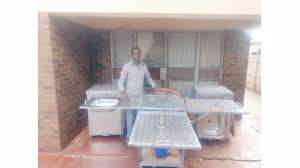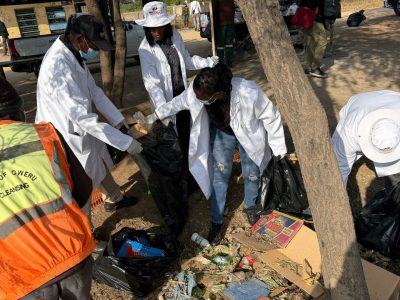Thulani Chauke who hails from Bulawayo, a former teacher who also invented Zimbabwe’s first schools’ mobile science laboratory has refined his science cart.Chauke has his own little ‘lab’ in Gwabalanda, and has been working for many years to try and refine his Sci-Cart, a fully equipped mobile science which is 50cm x 50cm when closed and has a span of 2m x 2m when open with a height of 90 cm.
20 students can use the Sci-Cart at one go. Chauke said it has the added advantage of allowing the classroom (for those rural schools with such a privilege) being used for science to be used for another subject immediately after a science lesson.
“The Sci-Cart can be folded away and put somewhere safe after a science lesson and so if a school has classrooms but no standard laboratories, this becomes the solution to the problem. It also means a school can buy one of these and lessons can be held under trees even,” Chauke explained.
US$850 is what it costs per unit, and the Sci-cart works out cheaper than building and furnishing standard laboratories which can be anything from between US$15 000 and US$20 000, well out of the reach of many schools in the country.
Chauke’s mobile science laboratory unlike many inventions, the country’s first schools’ mobile science laboratory was not born out of an intense desire to do better than the next person or beat the other person to the patent office.
With science labaratories fairly a common thing in urban schools, many rural schools do not have this luxury. Thus, the idea of a mobile science laboratory that could be pulled or pushed around is one that every rural science teacher would love to have within reach. At least such a contraption would take away the need to build the more expensive classroom-type buildings to house science laboratories which may in fact then disable the school to be able to fund the acquisition of needed science tools.
Very little could be offered to the rural aspiring medical doctor or engineer but since the turn of the millennium, people have envisioned a world where they would be able to have a means to encourage Science, Technology, Engineering, and Maths (STEM) among rural scholars, whether under a tree or otherwise. With the progress of technology, it was just a matter of time before this became a reality. It was not hard to see why people would think that the invention of a mobile science lab as we know them today would happen much sooner than it did.










Comments